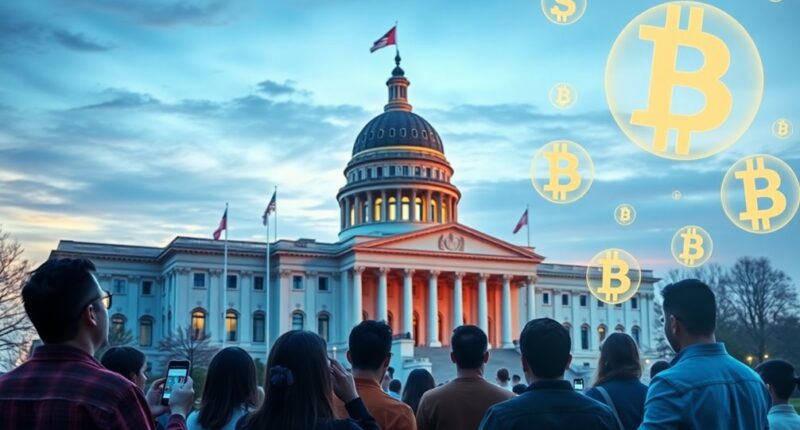As 16 states embrace Bitcoin as a strategic asset, you're left to wonder how federal strategies will respond. These states, like Arizona and Utah, are building substantial Bitcoin holdings to boost financial security. But with such a shift in state-level policy, what implications does this have for federal monetary strategies? The balance between state initiatives and federal oversight could redefine economic resilience in the U.S. and shape the future of digital currency.

As the world grapples with economic uncertainty, many are turning to Bitcoin as a strategic reserve, recognizing its potential to bolster financial security. You might find it interesting that the BITCOIN Act of 2024 proposes establishing a Bitcoin Strategic Reserve, aimed at strengthening the US dollar's global position. This initiative isn't just federal; fifteen states, with Arizona and Utah leading the charge, are actively exploring similar strategies.
By proposing to hold 1 million Bitcoins over five years, valued at around $100 billion, these states are taking significant steps toward securing their financial futures. Holding Bitcoin for at least 20 years could provide a long-term hedge against economic volatility. Imagine the impact of states locking in billions of dollars worth of Bitcoin; it could stabilize the crypto market, creating a robust foundation for future investments. The role of analytics in monitoring asset performance will be crucial for these states to manage their Bitcoin holdings effectively.
Such moves aren't merely reactive; they represent a proactive approach to diversifying financial portfolios. States are looking to increase liquidity and potential returns by incorporating Bitcoin into public funds, with some suggesting allocations of up to 10%. This shift reflects a growing recognition of Bitcoin's significance in modern finance.
On the federal level, the implications are even broader. Access to a Bitcoin stockpile could enhance the Federal Reserve's control over monetary policy, giving it a solid hedge against the weaknesses of fiat currencies. If the Fed were to diversify its reserves to include Bitcoin, it could better manage risks associated with interest rates during quantitative easing. Additionally, the US dollar's dominance in global foreign exchange holdings emphasizes the importance of considering Bitcoin in reserve strategies.
However, this transition requires a clear regulatory framework to address the inherent volatility and potential legal challenges that come with cryptocurrency investment. The global economic landscape is also shifting. More nation-states and central banks are expected to establish strategic positions in Bitcoin as a hedge against inflation and currency debasement.
If states and the federal government widely adopt Bitcoin, it couldn't only stabilize the crypto market but also influence global economic dynamics significantly. You can see how incorporating Bitcoin into strategic reserves is part of a broader trend toward diversifying economic assets.
As you look ahead, the next decade will be crucial in determining Bitcoin's role as a strategic reserve asset globally. The collaboration between state-level initiatives and potential federal strategies may redefine how you view financial security in an increasingly digital world.
The question remains: how effectively will federal strategies measure up against the proactive steps being taken at the state level?









